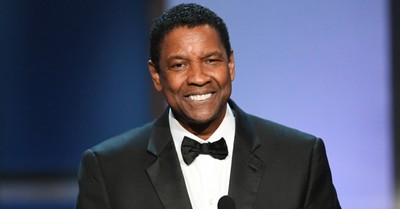Biden Faces High Pressure to Prove His Fitness at NATO Summit
The thirty-two member states of the North Atlantic Treaty Organization (NATO) are observing its seventy-fifty anniversary this week in Washington, DC. Support for Ukraine will be an especially high priority escalated by Russia’s missile attack Monday that hit a children’s hospital and killed at least forty-one civilians. The subplot across the week, however, will be President Joe Biden’s fitness.
He opened the summit yesterday with a speech supporting Ukraine. He will attend meetings today and a White House dinner for NATO leaders tonight, then speak with reporters at a press conference tomorrow. A senior fellow at the Atlantic Council said, “He has absolutely no room for any sort of mistakes, any sort of trip-ups,” adding that gaffes “are now going to be seen by European leaders as a broader question of suitability.”
Many Americans would agree.
“Who will serve us best these next four years?”
As the debate over Mr. Biden’s future continues, Atlantic journalist Conor Friedersdorf voiced the question many are asking: “Who will serve us best these next four years?” In his view, the issue is not the president’s past record or loyalty to him as a person or candidate.
He writes: “If loyalty is a virtue at all, the loyalty we owe to family members, to friends, to colleagues, and to country . . . will always compel us to put what’s best for them before what’s best for any politician, including any president, no matter how much he has achieved or sacrificed.”
Friedersdorf thus identifies the utilitarian relationship between Americans and our leaders: Who can do the greatest good for the greatest number of people? This relationship is personally transactional as well: Who can most benefit me and the causes I embrace?
The world’s religions typically relate to God or the gods in the same way.
- I have seen Muslims praying with such fervency that their foreheads were marked as they sought Allah’s favor.
- I have seen Buddhists praying before family altars to speed their ancestors’ journey to Nirvana.
- I have seen Hindus appeal to their various gods for the blessings these deities can purportedly bestow.
- I have seen Jews pray with fervency at Jerusalem’s Western Wall, hoping that God will hear them and bless their obedience.
And I have known Baptists who attended church on Sunday, so God would bless them on Monday. Truth be told, I am tempted in just the same way.
When our oldest son was diagnosed with cancer, one of my first reactions was anger with God since I had prayed for our son’s health and safety before he was born. Consciously, I knew that such prayers could not guarantee his health in a fallen world; subconsciously, I felt that I had kept my “side” of the “bargain,” but God failed to keep his.
“Believe this, not because it is true”
It is right and proper for Americans to choose a president based on a candidate’s ability to fulfill the office and serve our nation. But relating to God in such a utilitarian, transactional way misses the heart of the Christian experience.
In his classic The Screwtape Letters, C. S. Lewis records a senior demonic tempter counseling his understudy: “We do want, and want very much, to make men treat Christianity as a means; preferably, of course, as a means to their own advancement, but, failing that, as a means to anything.” In other words, the tempter continued, “‘Believe this, not because it is true, but for some other reason.’ That’s the game.”
In Lewis’ view, by contrast, we should believe in Christianity because it is true. He was blunt: “Christianity, if false, is of no importance, and if true, of infinite importance. The only thing it cannot be is moderately important.”
In other words, believe in God because he is God. Worship and serve Jesus because he is Lord.
A college professor heard me exhort people in a sermon to “make Jesus your Lord” and cautioned me afterward: “Jim, you don’t have to make him what he already is.” I similarly heard a pastor say, “God said it, I believe it, and that settles it,” to which another pastor replied, “Actually, God said it, and that settles it whether I believe it or not.”
“The ultimate experience of life”
The decision before us is whether we will allow Jesus to be in our lives what he already is in the universe: King of kings and Lord of lords (Revelation 19:16). It is whether we will allow his word to be the truth for us that it already is for eternity (cf. Romans 15:4).
Here’s the paradox: the more we serve Christ because he is Lord, the more we experience personally the consequences of his lordship. His omniscience leads us into his perfect will (Romans 12:2); his omnipotence becomes our strength (Philippians 4:13); his perfect character is increasingly manifested in our lives (Romans 8:29; Galatians 5:22–23).
The key is to trust and obey Jesus whether he does what we wish or not. When he disappoints us, in fact, we have a foundational opportunity to choose and demonstrate true biblical faith. The Anglican priest William Law (1686–1761) noted:
To thank God only for such things as you like is no more a proper act of piety than to believe only what you see is an act of faith. Resignation and thanksgiving to God are only acts of piety when they are acts of faith, trust, and confidence in the divine goodness.
Such “acts of piety” position us to encounter the living Lord Jesus in ways that transform our lives and our witness to the world: “When they saw the boldness of Peter and John . . . they recognized that they had been with Jesus” (Acts 4:13).
For the sake of our souls and our broken culture, therefore, we should agree with Billy Graham:
“The ultimate experience of life is knowing God.”
Will this “experience” be yours today?
Quote for the day:
“What you believe about God’s love for you will be reflected in how you relate to him. If you really believe God is love, you will also accept that his will is always best.” —Henry Blackaby
Photo Courtesy: ©Getty Images/Kevin Dietsch/Staff
Publish Date: July 10, 2024
Jim Denison, PhD, is a cultural theologian and the founder and CEO of Denison Ministries. Denison Ministries includes DenisonForum.org, First15.org, ChristianParenting.org, and FoundationsWithJanet.org. Jim speaks biblically into significant cultural issues at Denison Forum. He is the chief author of The Daily Article and has written more than 30 books, including The Coming Tsunami, the Biblical Insight to Tough Questions series, and The Fifth Great Awakening.
The views expressed in this commentary do not necessarily reflect those of CrosswalkHeadlines.
For more from the Denison Forum, please visit www.denisonforum.org.
The Daily Article Podcast is Here!

















